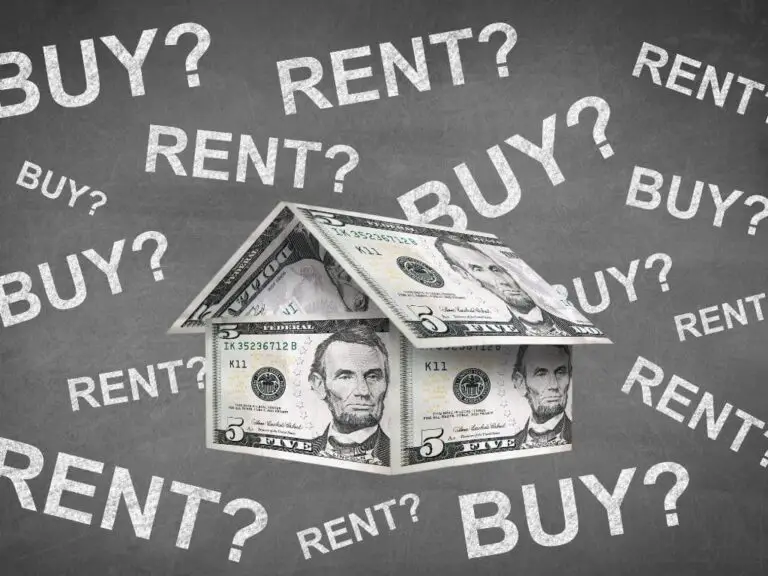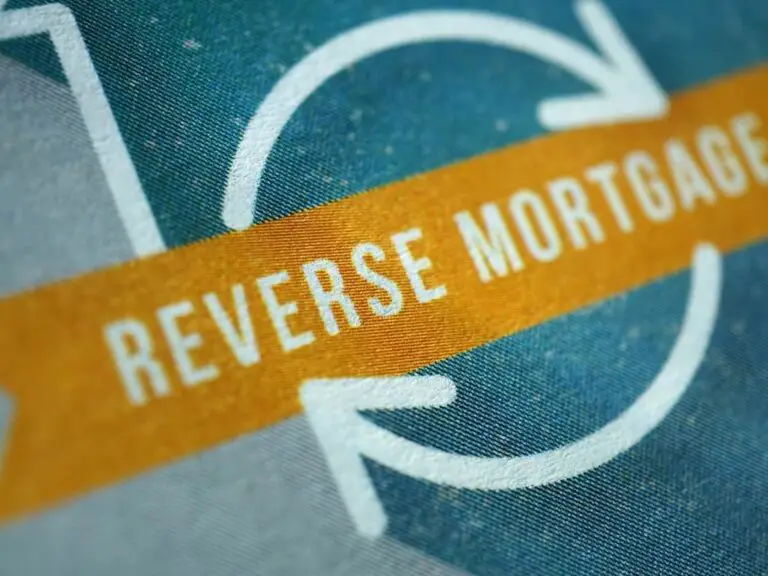What’s the Average Cost of Nursing Homes in Las Vegas, Nevada?
The average cost of a nursing home in Las Vegas, Nevada varies depending on the type of room. For a semi-private room, the average cost is approximately $8,273 per month. However, for a private room, the cost is higher, averaging around $10,646 per month.

What’s the Average Cost of Nursing Homes in Las Vegas?
The average cost of a nursing home in Las Vegas, Nevada, varies based on the type of room. According to the Genworth Cost of Care Survey conducted from June through November 2021, the median cost for a semi-private room in a nursing home facility is approximately $8,273 per month. For a private room, the median cost is around $10,646 per month.
These costs encompass a variety of services often provided by nursing homes, such as personal care assistance, room and board, supervision, medication, therapies and rehabilitation, and 24-hour on-site nursing care.
However, it’s important to note that the actual costs may vary depending on the specific services required and the level of care needed.
Factors Affecting the Cost of Nursing Home Care in Las Vegas
Location of the Nursing Home
The cost of nursing home care in Las Vegas can be significantly influenced by the location of the nursing home. Several factors related to location can impact the cost including the cost of living in the area, the demand for nursing home spaces, the amenities and services provided by the nursing home, and the proximity to medical facilities.
Las Vegas, being a major city, has a higher cost of living compared to rural areas or smaller towns in Nevada. Consequently, nursing homes in Las Vegas tend to be more expensive due to higher operational costs, including staff salaries, utility bills, property taxes, and maintenance costs.
The demand for nursing home spaces also affects the cost. In areas with a high elderly population or where nursing home spaces are in short supply, prices may be higher. Conversely, in areas where there is less demand or greater availability of nursing home spaces, prices may be lower.
The range of amenities and services offered by the nursing home can also impact the cost. Nursing homes in more affluent areas of Las Vegas may offer a wider range of amenities, such as private rooms, on-site medical facilities, or a higher staff-to-patient ratio, which can increase the cost.
Nursing homes that are closer to major medical facilities may charge more due to the convenience and access to immediate medical care. On the other hand, those located further away may have lower costs, but could also mean longer travel times for medical appointments.
Level of Care Required
The level of care required greatly influences the cost of nursing home care in Las Vegas. Costs vary depending on the types of services and the amount of care an individual needs. Basic services like room and board, meals, housekeeping, and some activities are usually included in the base rate. However, increased levels of care, such as assistance with daily activities, medical monitoring, and specialized care for conditions like Alzheimer’s or other forms of dementia, result in additional costs.
More specifically, residents who are largely independent and require minimal assistance will typically pay less, while those requiring comprehensive 24-hour care and supervision will contribute to higher costs. Also, the cost can be affected by the kind of room chosen (private or shared), and whether or not the facility offers luxury amenities.
Moreover, the cost of nursing home care in Las Vegas is also subject to market factors, including demand and the cost of living in the area. The average cost can vary greatly, making it important for individuals and families to thoroughly research and consider both the level of care required and the associated costs when selecting a nursing home.
Size of the Room
The size of a room in a nursing home in Las Vegas can significantly affect the cost of care. Larger rooms or private rooms tend to be more expensive than smaller or shared rooms. This is because they offer more personal space and privacy, which are considered luxury amenities in nursing home settings.
Amenities Offered
The cost of nursing home care in Las Vegas is significantly influenced by the amenities offered by each facility. These amenities can range from basic services to luxury accommodations and can greatly influence the overall cost.
Basic services include meals, housekeeping, laundry, and around-the-clock staffing. Most nursing home facilities also provide medical services, such as medication management, physical therapy, occupational therapy, and on-site medical care. These essential services are typically included in the base cost of care.
However, many nursing homes also offer additional amenities that can increase the overall cost. These may include private rooms, beauty and barber services, social and recreational activities, fitness programs, and specialized care for residents with specific health conditions such as Alzheimer’s or Parkinson’s disease.
Staff-to-Resident Ratio
The Staff-to-Resident Ratio in nursing homes is a key determinant of the cost of care in Las Vegas, as in other parts of the country. This ratio signifies the number of staff members available per resident, and is crucial in ensuring adequate levels of care. A higher ratio indicates more staff members per resident, which generally results in better care but also higher costs due to increased wages and benefits for staff.
Conversely, a lower ratio means fewer staff members per resident, potentially leading to lower costs but also potentially decreased quality of care. This is because fewer staff members may result in inadequate attention to individual residents, leading to neglect or mistakes in care.
Therefore, the staff-to-resident ratio is a balancing act between providing quality care and managing costs. Costs for nursing homes in Las Vegas, like many other areas, are significantly influenced by this ratio.
How Does the Cost of Nursing Homes in Las Vegas Compare to Other Cities in Nevada?
According to recent data, the cost of nursing homes in Las Vegas is comparatively lower for semi-private rooms, while it is higher for private rooms when compared to the average cost in other cities in the state of Nevada.
Specifically, the cost of a semi-private room in a nursing home facility in Las Vegas is approximately $8,273, compared to the statewide average of $9,216. This indicates that Las Vegas offers a more affordable option for those considering a semi-private room in a nursing home facility.
On the contrary, for private rooms in nursing home facilities, Las Vegas exceeds the state average with a cost of $10,646 compared to Nevada’s average cost of $10,007. This suggests that while Las Vegas may offer cost advantages for semi-private rooms, the city might be more expensive for those seeking private room accommodations in nursing homes.
These figures may vary based on specific factors such as location within the city or state, the level of care required, and the amenities provided by the nursing home facility.
How to Pay for Nursing Home Care in Las Vegas
Private Funds
Private funds can be used to pay for nursing home care in Las Vegas in several ways.
- Personal Savings: One of the most straightforward methods is to use personal savings. This includes money from savings accounts, checking accounts, certificates of deposit (CDs), and other liquid assets.
- Retirement Accounts: If the person needing care has retirement accounts such as 401(k)s or IRAs, these can be used. However, there may be tax implications and penalties for early withdrawal, depending on the age of the individual.
- Home Equity: If the individual owns a home, they can use home equity loans or reverse mortgages to fund their care. These options should be carefully considered as they can have significant financial implications.
- Life Insurance: Some life insurance policies have provisions that allow for the cash value to be used for health-related expenses, including nursing home care.
- Annuities: Certain annuity contracts can provide a steady stream of income that can be used to pay for nursing home care.
- Long-Term Care Insurance: This is a specific type of insurance that covers the cost of nursing home care, assisted living, and other long-term care services. It’s important to note that these policies must be purchased before the need for care arises.
- Family Support: In some cases, family members may contribute to the cost of nursing home care.
It’s important to consult with a financial advisor or elder law attorney to understand the potential financial and tax implications of using private funds for nursing home care. It’s also crucial to consider the long-term sustainability of these funding methods, as the cost of nursing home care can be significant and ongoing.
Long-term Care Insurance
Long-term care insurance is designed to cover long-term services and supports, including personal and custodial care in a variety of settings such as your home, a community organization, or a nursing home in Las Vegas.
To use long-term care insurance to pay for nursing home care in Las Vegas, a policyholder must first be deemed eligible for benefits. This typically means that the policyholder needs assistance with at least two “activities of daily living” (ADLs), such as bathing, dressing, or eating, or they need supervision due to cognitive impairment.
Once eligible, the policyholder then enters an “elimination period,” which is like a deductible, where the policyholder pays out-of-pocket for services. This period can range from a few days to several months, depending on the policy. After the elimination period, the insurance company will start paying for the covered services.
The benefit amount and duration of coverage vary based on the policy. Some policies may cover the full cost of a nursing home, while others may only cover a portion. Some policies offer a lifetime benefit, while others only cover a specific number of years or a total dollar amount.
Long-term care insurance policies typically cover room and board, skilled nursing care, physical therapy, and other services provided by a nursing home. However, the specifics of what is covered can vary greatly from policy to policy, so it’s essential to understand your policy’s terms and conditions.
Medicare/Medicaid
Medicare and Medicaid are federal programs that provide health coverage if you meet certain eligibility criteria. In Las Vegas, as in the rest of the United States, Medicare can be used to pay for a short-term stay in a skilled nursing facility, typically after a hospital stay. Medicare Part A covers the first 20 days of care in full, and then all but a daily coinsurance for the 21st through 100th days in a benefit period.
On the other hand, Medicaid, which is a joint federal and state program, can help pay for a long-term stay in a nursing home. However, to be eligible for Medicaid coverage, you must meet certain income and asset limits. These limits vary by state and by whether you are single or married.
In Las Vegas, the Nevada Medicaid program can be used to pay for nursing home care for eligible individuals. This program pays for a significant portion of the more than 1.4 million people living in nursing homes nationally. It covers expenses for long-term nursing home care, as well as certain home and community-based services.
Before Medicaid will pay for a nursing home, it must be proven “medically necessary” for the patient. Once an individual is approved for Medicaid, the program will pay for all their costs in a Medicaid-approved nursing home.
To get more specific information about qualifying and applying for Medicaid in Las Vegas, you can contact the Nevada Department of Health and Human Services or a Medicaid planner.
Veterans Benefits
Veterans in Las Vegas, Nevada, can utilize several Veterans Affairs (VA) benefits to cover the cost of nursing home care. These benefits are provided by the U.S. Department of Veterans Affairs and are available to eligible veterans based on their service history and medical needs.
- VA Community Living Centers: These are VA-owned nursing homes where veterans can live and receive services such as rehabilitation, hospice care, respite care, and services for veterans with chronic stable conditions needing nursing care and assistance with daily activities.
- State Veterans Homes: These homes are owned and operated by the state. They provide nursing home or adult day care. The VA inspects and approves these homes. Some cost to the veteran may be required.
- Aid & Attendance and Housebound: Veterans and survivors who are eligible for a VA pension and require the aid and attendance of another person, or are housebound, may be eligible for additional monetary payment.
- Contract Adult Family Homes: These are places where veterans (usually 6 or less) can live in a rented room of a private home. The home provides a room, meals, and help with activities of daily living.
Veterans or their surviving spouses must meet specific eligibility criteria to qualify for these benefits. The VA also offers assistance in navigating the benefits application process. Before applying for any benefits, it is advisable to consult with a VA benefits advisor or a financial counselor who is familiar with VA benefits.
How to Save on Nursing Home Costs in Las Vegas
Saving on nursing home costs in Las Vegas can be achieved through several strategies:
1) Medicaid: For eligible residents of Las Vegas, Medicaid can cover the costs of nursing home care. Eligibility is based on income and asset requirements, and applications can be made through the Nevada Department of Health and Human Services.
2) Personal Care Services (PCS) Program: This state program under Nevada Medicaid provides a personal care aide to assist with daily living activities, helping to delay or prevent the need for nursing home placement.
3) Home and Community Based Waiver for the Frail Elderly (HCBW-FE): This program offers non-medical services to seniors in their own home or in the community, reducing the need for more costly nursing home care.
4) Home and Community Based Waiver (HCBW) for Persons with Physical Disabilities: Similar to the HCBW-FE, this program allows disabled residents who require nursing home level of care to remain living in the community, thus reducing nursing home costs.
5) Community Options Program for the Elderly (COPE): This program provides non-medical support to elderly individuals who require a nursing home level of care, helping to reduce the need for nursing home placement.
6) Long-Term Care Insurance: This type of insurance can help cover the costs of nursing home care. It’s best to purchase this insurance at a younger age as premiums increase with age.
7) Veterans Benefits: Veterans and their spouses may be eligible for long-term care benefits through the Department of Veterans Affairs (VA).
8) Shared Room: Opting for a shared room rather than a private one can significantly reduce nursing home costs.
9) Non-Profit Nursing Homes: These often have lower costs compared to for-profit nursing homes.
10) Negotiate: Some nursing homes may be willing to negotiate their rates. It’s always worth asking.
Frequently Asked Questions
-
What is the average cost of a nursing home in Las Vegas Nevada?
The Genworth Cost of Care Survey 2020 shows that a monthly cost for a private or semi-private room at a Las Vegas nursing facility is $9,155 and $10,524 respectively. If seniors don’t need such high-quality care, they might consider assisted living and home health care.
-
Why you should not move to Las Vegas?
Las Vegas is well-known for gambling. There is 24/7 gambling and drinking available in Las Vegas. These activities can easily consume one’s life. Sin City has seen many people spiral out of control.
-
Is it expensive to live in Vegas?
The housing costs in Las Vegas are 9.9% higher than that of the national average, and utility prices are 6.6% lower than that national average. Transport expenses such as bus fares, gas prices and other transportation costs are 20% more than the national average. Groceries in Las Vegas are about 9% more expensive than the national average.
-
Can a family member get paid to be a caregiver in Nevada?
Family members (including siblings and adult children) can be paid to care for someone else unless the caregiver is legally responsible. Personal care may not be provided by spouses or other legally responsible individuals (LRIs).
-
How much is senior living in Vegas?
The cost of assisted living in Las Vegas may be slightly lower than that of the Nevada average at $3,750/month, but it is still significantly cheaper than the $4,500 national average.
-
Is Vegas a good place to live?
Las Vegas is America’s fastest-growing city. It is a wonderful place to visit, but it also makes a wonderful place to live. Las Vegas is known for its nonstop gambling and party atmosphere.
-
Is it cheaper to live in Las Vegas than California?
Las Vegas tends to be more affordable. Las Vegas offers great deals on housing with prices that are half of those in California.
-
What is the average cost of assisted living in Nevada?
Cost of Assisted Living/Memory Care: The average monthly cost for assisted living in Nevada is around $3,400. This is about 15% lower than the national average. The monthly cost of assisted living in Las Vegas is $3,300, while Reno costs $3,250.
-
Is Las Vegas a cheap place to retire?
Low taxes make it possible to live in Las Vegas. Nevada has no income tax due to all the tourists who make it the Entertainment Capital of the World. This makes Las Vegas one of the most affordable big cities in the world.
-
What is a good salary in Las Vegas?
The average salary for Las Vegas is $38,000. This is because there’s a median income of $38,000 in Las Vegas, meaning that if you make more than this you will be earning over 50% of those living in Las Vegas. Average salary in Las Vegas: $44,110 An hourly rate of $18.27 in Las Vegas makes it a good place to work.
-
How much do you need to retire in Vegas?
What amount do you require to retire in Las Vegas To live in Las Vegas comfortably, your annual income should be between $40,000 and $50,000. You can save money for emergency situations and enjoy a few nights on the Strip. The average annual income for a Las Vegas resident, however, is $25,555.
-
Is Las Vegas good place to retire?
Retirement Communities Las Vegas are a wonderful place to retire because of its beautiful weather and tax-friendly atmosphere. There is also a wide range of recreational activities. There are many Las Vegas retirement communities that provide a wide range of amenities and services for seniors.
-
What is the nicest suburb of Las Vegas?
The more affluent, smaller suburb of Las Vegas is Summerlin South. Summerlin South is located at the Red Rock Canyon National Conservation Area’s edge. It offers stunning sunsets and natural beauty, as well as over 150 miles worth of walking trails.
-
Why is Nevada not a good place to retire?
The state has a much higher violent crime rate than the average. In 2020 there were 460 violent crimes per 100,000 Nevadans, which is higher than the 399 for 100,000 nationally. The health outcomes of older residents in Nevada are worse than the national average.
-
Does Medicaid pay for home care in Nevada?
Nevada Medicaid Personal Care Services Program offers in-home assistance for those who are disabled or have a health condition that requires it.







